The current social issue that is most significant in my life is one that is a great distance from the United States. I became aware of Burma as a student traveler less than two years ago. Upon arriving, I knew little about the land, culture, people, or the political and economic situation that has grasped this country for the past four decades. Sadly, over this period of time, there have been many brave activists for democracy and change that have lost their lives. In this essay I will touch upon the political history of Burma, as well as the current administration, and discuss why this social issue occurring thousands of miles away is so significant to me. Also I will address what steps we all can do as free Americans to assist in the fall of this brutal dictatorship.
Many historians designate the beginning of Burma’s political and economic dilemmas back to the year 1885, when the British overthrew the Burmese government and declared Burma a colony of Britain. The resentment from the Burmese people in response to the occupation grew and was channeled through a number of protests and violent scenarios. One specific flux of the discontent was coined the “Shoe Question”, where the colonizers did not remove their shoes when entering a temple or other places of worship. A monk tried to remove the shoes from one of the bearing offenders, and was arrested and then imprisoned for attempt of murder. Burma’s history is plagued with a number of similar incidences.
After WWII the British again tried to regain control over Burma, but they were met with opposition. During this time of turmoil, a young student rose from the crowd named U Aung San, who along with the Anti-Fascist People’s Freedom League (AFPFL) behind him was a voice for the Burmese. Together they called for full independence to be granted to Burma from the British rule, which they did win.
As often occurs through history, once a country is able to fight off the outside intruder, the next step is to fight on a civil level. This is where Burma has been for the last four decades. The military junta violently controls Burma, has the only Noble Peace prizewinner, Aung San Suu Kyi imprisoned under house arrest, and continues to suppress any kind of opposition with brutal force. They have refused to hand Burma over to the National League for Democracy (NLD) that won over 80% of the votes. The 8888 Uprising was a landmark demonstration in this struggle. Students along side with Monks took to the streets of Yangon in protest against the SLORC (State Law & Order Restoration Council) due to the political oppression and economic failure. The SLORC declared martial law, and hundreds of the protestors were shot down in the streets, people murdered for speaking out for the change that they sought. The 8888 Uprising is closing in on a very important anniversary. The Olympics are taking place in China this year. China has continued to use its veto power to block the UN (United Nations) from making any positive change in Burma. They have been able to profit off of the genocide by the selling of arms/weapons to the SLORC, and via the black market trade of opium. I along with the US Campaign for Burma am pushing for the boycott of the Olympics in China. You can help by turning your televisions off, not purchasing any Olympic merchandise and boycotting the corporate sponsors. (www.uscampaignforburma.org for more details)
Thus, in the foretelling of Burma’s history, I can now explain why this social issue is the most significant in my life. I spent just under a week in Burma and among the days I spent wandering Yangon city, the countryside, visiting major landmarks, orphanages, and monasteries, I have never been so touched by a culture and the people. One of the days was spent with a monk named Suryi, who took me to the Shwedagon Pagoda. There he explained the artwork, the architecture, and the different worship figures. He also lead me to the discovery that my sacred figure is the elephant, and showed me the tradition of pouring water over the statues head which would bring prosperity in the coming year. The Burmese are extremely warm, friendly, giving, patient, people. There is this over whelming sense of peace when Buddhist monks and nuns surround you. With faces covered in Thanakha (Burmese make-up), smiles, the sweet smell of flowers in the air, the picturesque countryside, and the beautiful people, this mixture of grace had a strong impact on me. Even more over whelming is the odd silence that I sensed from the people. It was a strange situation to be in. A traveler to a foreign country, no familiarities, friendly faces, a seemingly safe and content environment, yet it was not the case.
My passion for Burma began as our ship pulled away from port, and that was where my discovery of this country truly began. As I learned about the history and the present pugnacious dictatorship, it was hard to fathom that I had walked on the roads where people had been shot down and killed for speaking out. The human rights violations that are happening in Burma are beyond nefarious. I feel compelled by the children that I met, the kindness of all the monks and nuns, of the people who took me in for tea, and people who helped me find my way; to bring my experience and my working knowledge to achieve change and help the Burmese people make it a reality. Through my passion for Burma, I have been an active volunteer with US Campaign for Burma. I have worked with Jeremy Woodrum, Thelma Young, and Grace Michel. I also was able to meet the founder of The Human Rights Action Center, Jack Healey, and also the exiled Prime Minister Dr. Sein Win.
I have often reflected on events in history, and have wondered what I would do if I was alive during these battles, I know that Burma’s cause is one that I want to see realized. One day I will be able to return to this land and know, in my heart, that change was possible.
skip to main |
skip to sidebar

Aung San Suu Kyi



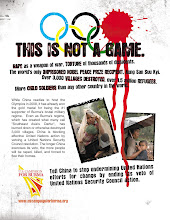
more info @ http://uscampaignforburma.org


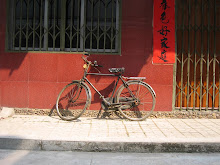
China

Edward Gorey

My bicycle ~LA









Di, Toby, & I
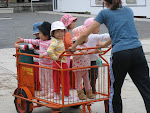
Kobe, Japan


Madrid, Spain
















Zagreb, Croatia
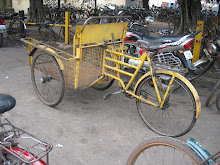
An SUV in India

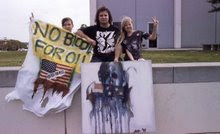




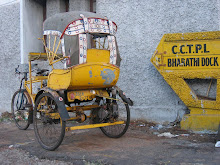
India

My Stencil~ LA



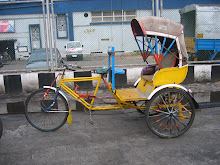
Chennais, India


My Stencil ~ LA

Istanbul, Turkey

Kobe, Japan

Rigo
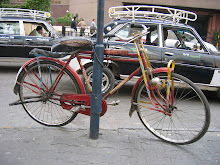
Cairo, Egypt


Zagreb, Croatia


Amreena The Great ~LA
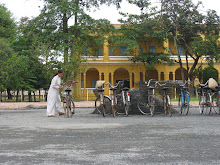
Vietnam

Vietnam
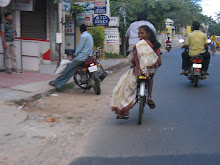
India

My stencil ~ LA
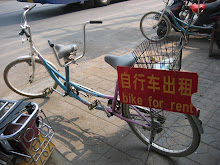
China

Danny Baby & Eva ~LA


Vera & Tai ~LA

Burmese Taxi

Yangon, Burma
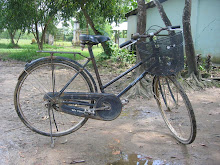
Yangon, Burma

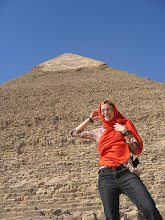
My Heroine

Aung San Suu Kyi
Link Me Up Scotty!
Sharing the LOVE....
Followers

The MUST Read List
- Yearning
- The People's History of the United States
- The Stranger
- Confessions of an Economic Hitman
- America's Disappeared
- The Women of Left Bank
- Catcher in the Rye
- Ham on Rye
- Siddhartha
- Animal Farm
- ALL The Harry Potter Books
- The Motorcycle Diaries
- Ishmael
- Manifesto
Blog Archive
About Me
Mr. Raven


Boycott the Olympics in China

more info @ http://uscampaignforburma.org
Come Ride With Us!!!

Amreena on her 30th!!!

Bicycle Love...

China

Edward Gorey

My bicycle ~LA
Dahlia

Amreen and Lisa

The Bitchie-Celtas

Ez, and Noel

Abe

5FIX2 Crew

Nicollette

Chris

The Toy Ride

Di, Toby, & I

Kobe, Japan
Punk-A-Poo


Madrid, Spain
Mr Grubb

Me, Noel, and Abe

Pretty

Mr Grubb & I

5FIX2 Beach Ride

The GBP Crew

DJTone

Miss Sue Rubin

Israel

Noel, and Louie

Niki & I

Daylo.Me.Louie.Kenny

Annie

Abe, Jo Jo, and I

Ernie


Zagreb, Croatia

An SUV in India
Fellow Peugeot Rider

My first protest!

Louie


Debra

Thanks Harry!


India

My Stencil~ LA
We Love Riding

Gabe & April

Wayen


Chennais, India
Jo Jo


My Stencil ~ LA

Istanbul, Turkey

Kobe, Japan

Rigo

Cairo, Egypt
Heather


Zagreb, Croatia
Elliott


Amreena The Great ~LA
*BIKE ART III Photo*

Vietnam
*BIKE ART III Photo*

Vietnam
*BIKE ART III Photo*

India
*BIKE ART III Photo*

My stencil ~ LA
*BIKE ART III Photo*

China

Danny Baby & Eva ~LA


Vera & Tai ~LA

Burmese Taxi

Yangon, Burma

Yangon, Burma
...then

....Now....

